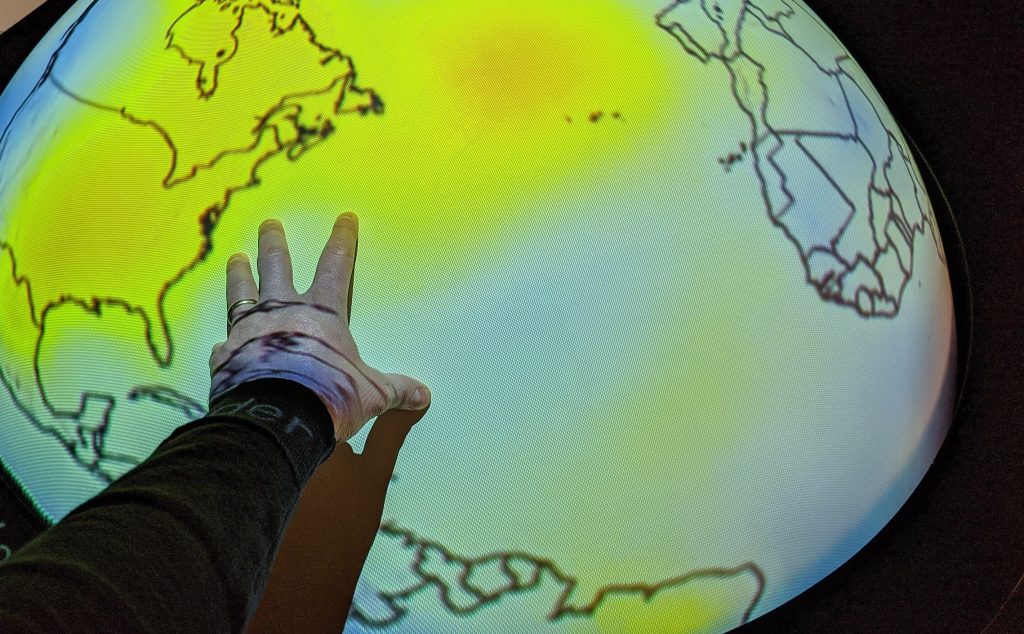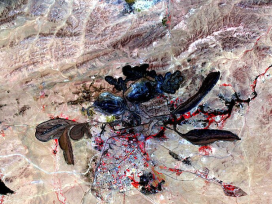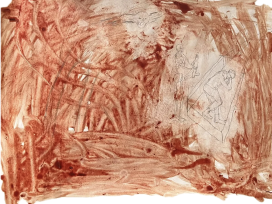Why is a diehard climate-crisis sceptic like Trump forcing Zelensky’s hand on a peace agreement seemingly focused on green-transition raw materials? If we temporarily set aside the highly problematic issue of bartering security with a third-party business transaction, what might be the motivation behind the Republican’s proposed ‘mineral deal’? And why the drive for Ukrainian resources such as rare earth elements, which, despite their name, aren’t even particularly rare?
In part, mining critical raw materials is such an intense enterprise, it’s difficult to find communities willing to absorb the disruption and pollution. Julie Klinger, author of Rare Earth Frontiers, describes how ‘if you have a big area or a geological deposit that has many, many, many millions of tons of material, if 2% of that contains rare earth elements, that’s considered a really good deal.’ And then, to drive the maths home, she flips the equation. ‘Think about that: in a good scenario, 98% of the stuff that’s dug up is left behind as waste.’ And while some of the mined earth could be rich in ‘gold or silver or phosphate’, it could similarly contain radioactive or otherwise toxic materials such as ‘uranium or thorium or arsenic’.
Rare earths are evident in large parts of the world, including the USA, but only China has the long-term know-how for effectively processing raw materials. ‘The US Department of Defense woke up to this about 15 years ago,’ says Klinger, ‘and has since then been shopping for alternatives, while also continuing to receive many … components from counterparts and manufacturers in China on a reliable basis.’
Not unlike nineteenth-century prospectors of gold, Americans are rushing to get to new critical raw material mining locations first. Trump first set his second-term sights on Greenland: a minimally populated island of considerable size, where mining already has a centuries-old history – and would only endanger the Harbour seal, right? Now it would seem that the physically and emotionally distant neocolonialist would have no qualms extracting and profiting from the already desecrated and largely depopulated areas of an expansive, war-torn country.
And then there are the other applications of critical raw materials. ‘There’s a big push in the US military to develop assault rifles that are powered by lithium batteries,’ says Klinger, bringing a terrifying aspect of the rational behind this deal back full circle.

The critical list: raw earth elements, lithium
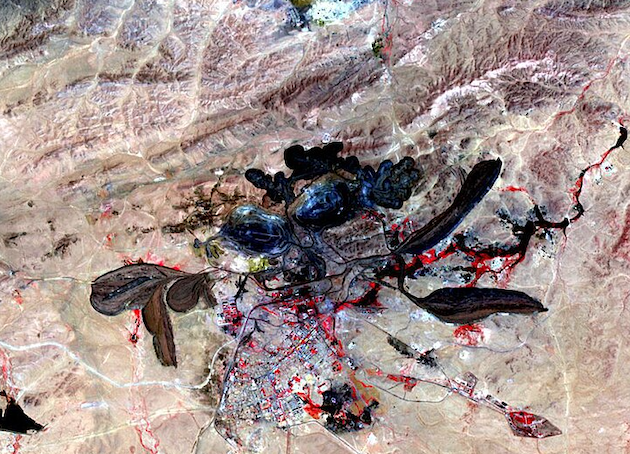
Rare earth mine, Bayan Obo, Baotou, Inner Mongolia. A combination of satellite images captured by ASTER, NASA Earth Observatory, via Wikimedia Commons
By Julie Klinger
The race for green transition supplies is on. But where’s the thrill in metals, discreet and hidden yet widespread? Mining, intensive due to low concentrations, throws up waste elements like arsenic. Space cowboys and deep-sea dredgers contest environmental stability more than China’s monopoly, based on 40-years of involved processing. Health and recycling regulations are a must.

By Predrag Momčilović
Plans to exploit Serbia’s lithium, seemingly shelved two years ago, are back on the table. Germany and the EU appear willing to overlook president Aleksandar Vučić’s abuses of power to access the precious metal. Will their double-standards collaboration with Serbia’s right-wing government undermine citizen trust in EU accession?

By Žaneta Jansa Gregorová
Eurozine associate, Green European Journal on the Czech government, private investors and the EU, who see lithium mining in Czechia’s struggling coal regions as an opportunity to revitalize the economy while also boosting Europe’s green transition. But local communities have different aspirations for their future.

Deep pollution: uranium, phosphorous
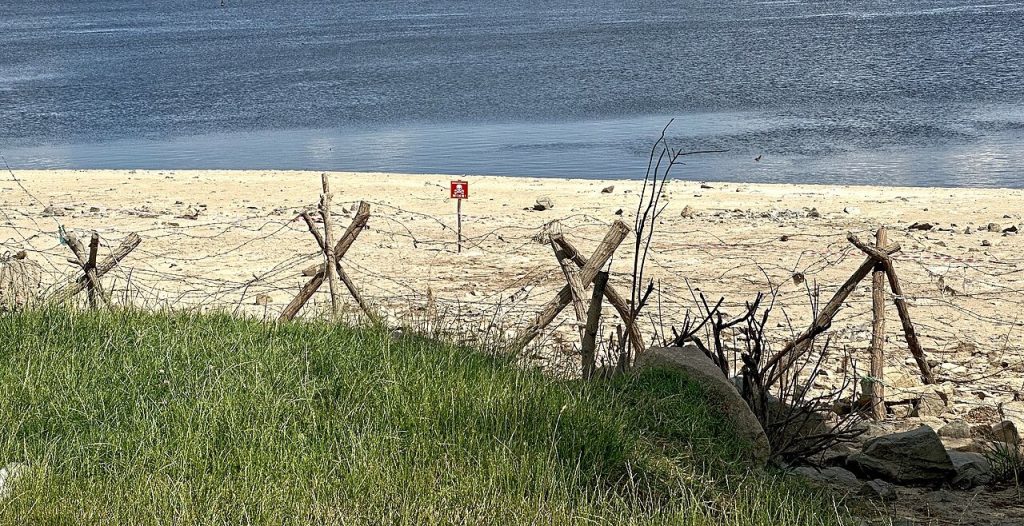
Zaporizhzhia and Kakhovka Reservoir (crop), July 2023, Enno Lenze. Image via Wikimedia Commons
By Svitlana Matviyenko
Perceiving war as a series of strategic manoeuvres delineated on a map renders a horizontal view of conflict. And projecting an end to fighting is fundamentally restorative. But deep pollution, as is occurring in Ukraine from Russia’s radioactive colonialism, warns of a more persistent dimension with long-term environmental impact.

By Kate Brown and Aro Velmet
In the aftermath of the Chernobyl accident, international agencies dismissed local doctors’ warnings about a ‘public health catastrophe’ in order to suppress scandal over nuclear tests carried out by the West since the 1950s. Kate Brown talks to Aro Velmet about the secret history of radiation and what Chernobyl means in the era of climate change.

By Iryna Zamuruieva
Tracing responsibility for honeybee losses in rural Ukraine points to farmers and pesticide-treated rapeseed fields. But whose practices really lie behind the short-term bid to increase crop productivity? And what do the historic uses of agrochemicals tell us about their current weaponization?

Green society ideals
By Martin Vrba
Unlike the political challenges and wars of the past, the climate and environmental crisis we now face is universal. Yet green movements remain on the political periphery and continue to be viewed in narrow, reductionist terms. What kind of solidarity can unite the emerging ecological class?




